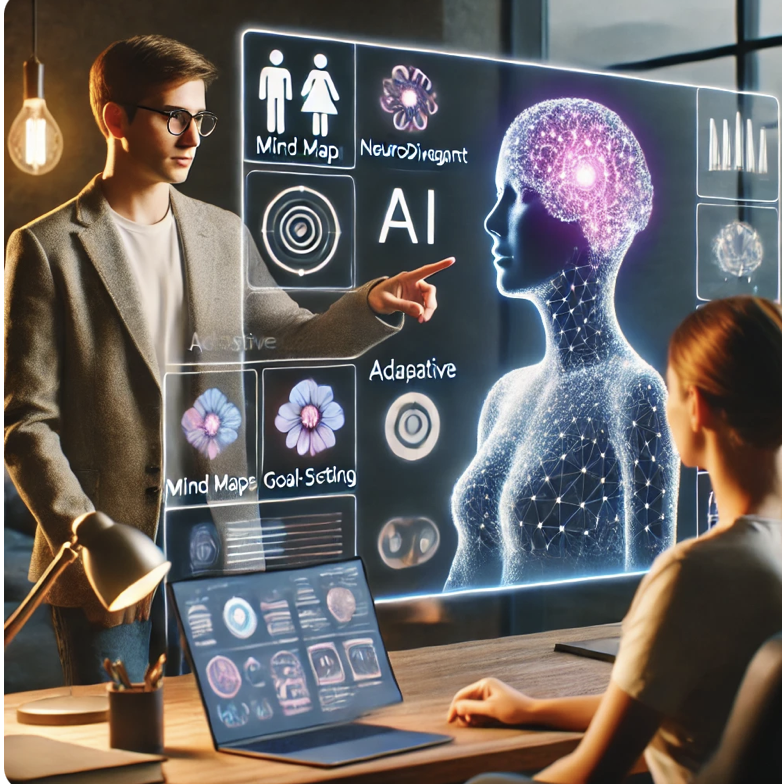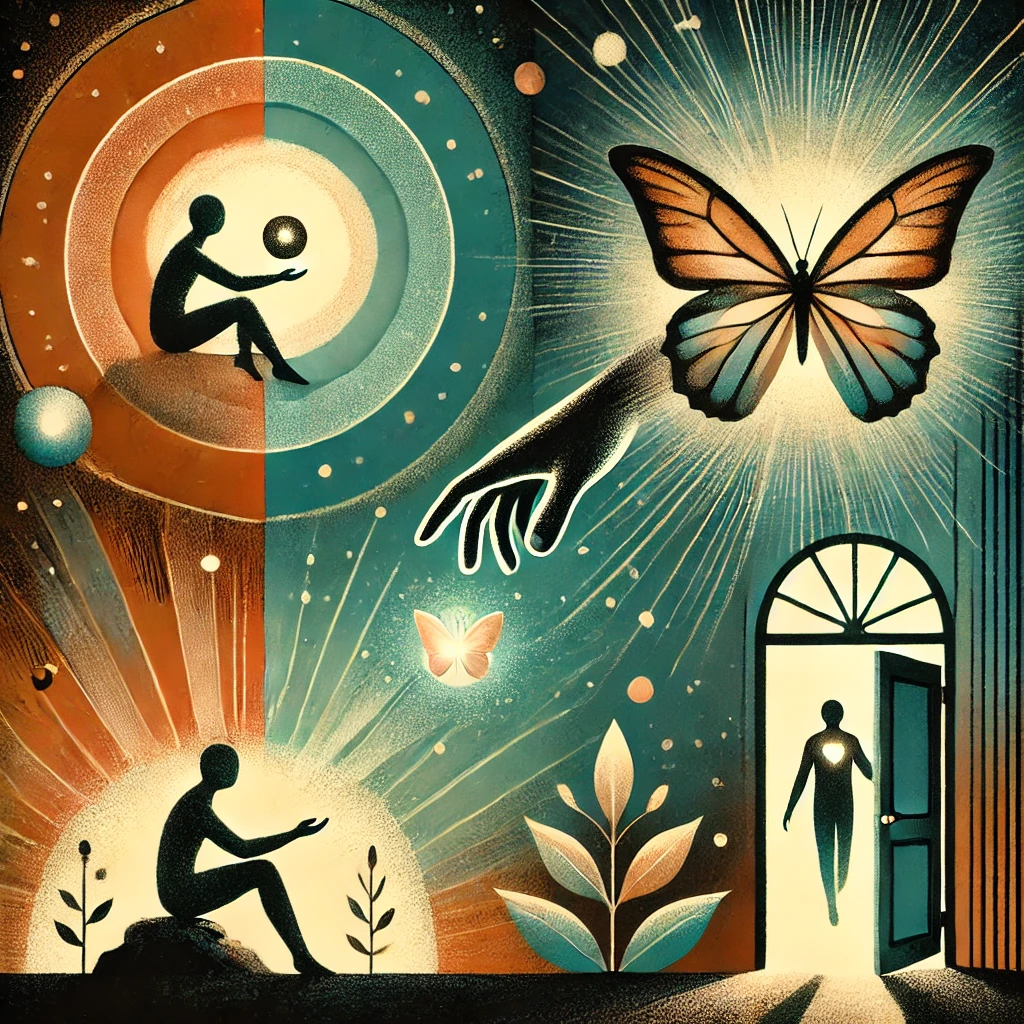Higher Vibes Coaching Blog

Getting the ADA Accommodations You Deserve as a Neurodivergent or Disabled Professional
Workplace accommodations shouldn’t be a fight, but for many neurodivergent and disabled employees, the process is confusing, draining, and often mishandled by employers. This article explains your ADA rights, the true meaning of the interactive process, and how to advocate for yourself without oversharing medical information. You’ll learn how to document delays, build allies, and stay grounded — even if you’re facing discrimination, retaliation, or systemic resistance.

Decolonizing the Coaching Industry: Power, Patriarchy, and the Myth of Neutrality
The coaching industry promises liberation—but too often reproduces colonial and patriarchal power. This article explores how neutrality, credential culture, and “professionalism” sustain dominance, and offers practical steps toward a decolonized coaching ecosystem built for everyone.

Neutrality Is Not Silence: How Coaches and Leaders Can Honor Identity, Inclusion, and Psychological Safety
Explore why “neutrality” in coaching and leadership often becomes a tool of erasure. This in-depth article reframes neutrality as emotional maturity—not avoidance—and offers new research, inclusive frameworks, and self-reflection tools to help leaders, coaches, and teams build real psychological safety.

I Wore a Mamdani T-shirt. You’d Think I Set the House on Fire
When I posted a simple self-care video in a major coaching forum—wearing a Zohran Mamdani t-shirt, nothing political, just human—a “master coach” accused me of being unprofessional and turned it into a public takedown. The fallout says everything about who’s allowed to speak, who’s expected to stay silent, and why true psychological safety scares the people who preach it. This story was inspired by something that happened to me — a small, public moment that revealed so much about the world we’re living in.

Using Genograms To Understand Generational Trauma
“Just live with it” isn’t resilience—it’s survival passed down as strength. This article explores how generational trauma becomes identity, and how coaches can use genograms to trace emotional inheritance, unmet needs, and patterns of silence. By mapping family systems with empathy and boundaries, trauma-informed practitioners help clients replace endurance with connection, creating space for self-trust and intergenerational healing.

Before You Hire a Coach: How Their Background Shapes Your Care
Not all coaches are built the same. This guide unpacks how a coach’s background — HR, therapy, sales, or spirituality — shapes the care they offer. Learn how to spot performative empathy, evaluate training, and choose a trauma-informed coach who honors your nervous system and your boundaries.

Coaching’s Empathy Problem: How Performance Culture Hijacked Presence
Many coaches talk about empathy—but few embody it. This essay exposes how performative empathy, toxic positivity, and the pressure to “look caring” are re-traumatizing clients and burning out practitioners. Learn the neuroscience behind real attunement, how false empathy activates the brain’s pain pathways, and five embodied practices to rebuild authentic presence in your coaching work.

Adapting the GROW Model with AI for Neurodivergent Clients
Integrating AI with the GROW model enhances adaptability, inclusivity, and personalization for neurodivergent individuals, empowering them with greater self-agency. By leveraging AI for insights, flexible goal-setting, and accountability, ND clients can overcome executive dysfunction, improve brainstorming, and develop action plans that align with their unique thinking styles, while human coaches provide essential emotional depth and ethical guidance for sustainable growth.

10 Things Coaches Should Reveal to Clients
Many coaches are taught to ask powerful questions, but they are often not taught to be powerful witnesses. There’s a huge difference between holding space and being real in it. So here’s my spicy, soulful list of 10 Things Coaches Should Reveal to Their Clients—not to center themselves, but to model radical honesty, safety, and shared humanity.

10 Truths About Recovery Every Coach and Client Should Know
Coaching someone in recovery—or coaching yourself—requires more than tools and credentials. These 10 truths cover harm reduction, relapse, identity shifts, and the deep impact of trauma and systemic oppression. If you’re a life coach, wellness practitioner, or trauma survivor learning to lead yourself, this guide lays the foundation for recovery-oriented, trauma-informed coaching that actually supports healing.

ADHD vs. Autism: Key Differences, Overlapping Traits, and How to Get the Right Diagnosis
ADHD and autism share traits like masking, sensory overload, and social exhaustion, but they are distinct neurotypes (even though there is often an overlap). Learn how to tell the difference, why ADHDers may seem autistic, and how to get an accurate diagnosis.

Why So Many Fake Executive Coaches?
Why is “Executive Coach” the hottest (and most overused) title in coaching? This bold take calls out the hype, reveals why real senior-level business experience matters, and offers better title alternatives to build trust—and attract the right clients.

5 ADHD Coaching Mistakes That Sabotage Progress (And What to Do Instead)
Coaching ADHD clients isn’t just about productivity hacks—it’s about understanding how their brains actually work. Here are five common coaching mistakes that can backfire, plus smarter, ADHD-friendly strategies that lead to real results

ICF Ethics & Identity in Coaching: Why “I Can Coach Anyone” Is a Red Flag
Some coaches dismiss identity in coaching, violating ICF ethics and DEIB principles while gaslighting clients and peers. Learn why erasing identity isn’t neutrality—it’s unethical coaching that fails to create truly inclusive spaces.

The Myth of “I Can Coach Anyone”: How Lily Zheng’s FAIR Framework Elevates Coaching
Discover why the belief that “I can coach anyone” can be harmful to clients and the coaching profession in this eye-opening case study. Learn how Lily Zheng’s FAIR Framework (Fairness, Access, Inclusion, and Representation) can help coaches develop cultural competence and create truly equitable, client-centered coaching experiences.

Coaches: Using the Narrative Coaching Model Through an Intersectional Lens
Traditional narrative coaching often focuses on individual mindset shifts without addressing systemic oppression. An intersectional approach helps clients reframe their stories while acknowledging external barriers, validating lived experiences, and fostering both personal and collective empowerment.

Coaches: Make the Be-Do-Have Model More Intersectional
The Be-Do-Have Model is often framed in a way that assumes everyone has equal access to the same opportunities, but that’s not the reality for people navigating systemic barriers due to race, gender, disability, class, or other intersectional factors. If coaches want to make it more intersectionality-friendly, we need to acknowledge privilege and structural challenges and redefine success beyond dominant narratives.

The Dark Side of Coaching: Women Gatekeeping Women
Coaching promotes growth and inclusion, but behind the scenes, competition and quiet gatekeeping often tell a different story—especially for women of color. This is how a seasoned executive-turned-coach navigated subtle but persistent challenges from a fellow coach determined to keep control of the conversation.

Coaching Techniques for Finance Professionals
Finance professionals face relentless pressure, burnout, and identity suppression in high-stakes roles. This guide explores how specialized coaching can transform careers by addressing burnout, enhancing decision-making, and empowering professionals with tailored strategies for investment banking, trading, hedge funds, and more—unlocking sustainable success through resilience, clarity, and authenticity.

Why Getting an Adult ADHD Diagnosis Is Tough (And What to Do About It)
For many adults, the journey to an ADHD diagnosis is both frustrating and liberating—it provides long-awaited answers but also reveals the barriers to treatment and support. From struggling with focus, procrastination, and emotional overwhelm to navigating the complexities of online diagnosis and access to care, this guide explores why getting diagnosed is so difficult, what prompts adults to seek answers, and how to find the right resources for treatment.